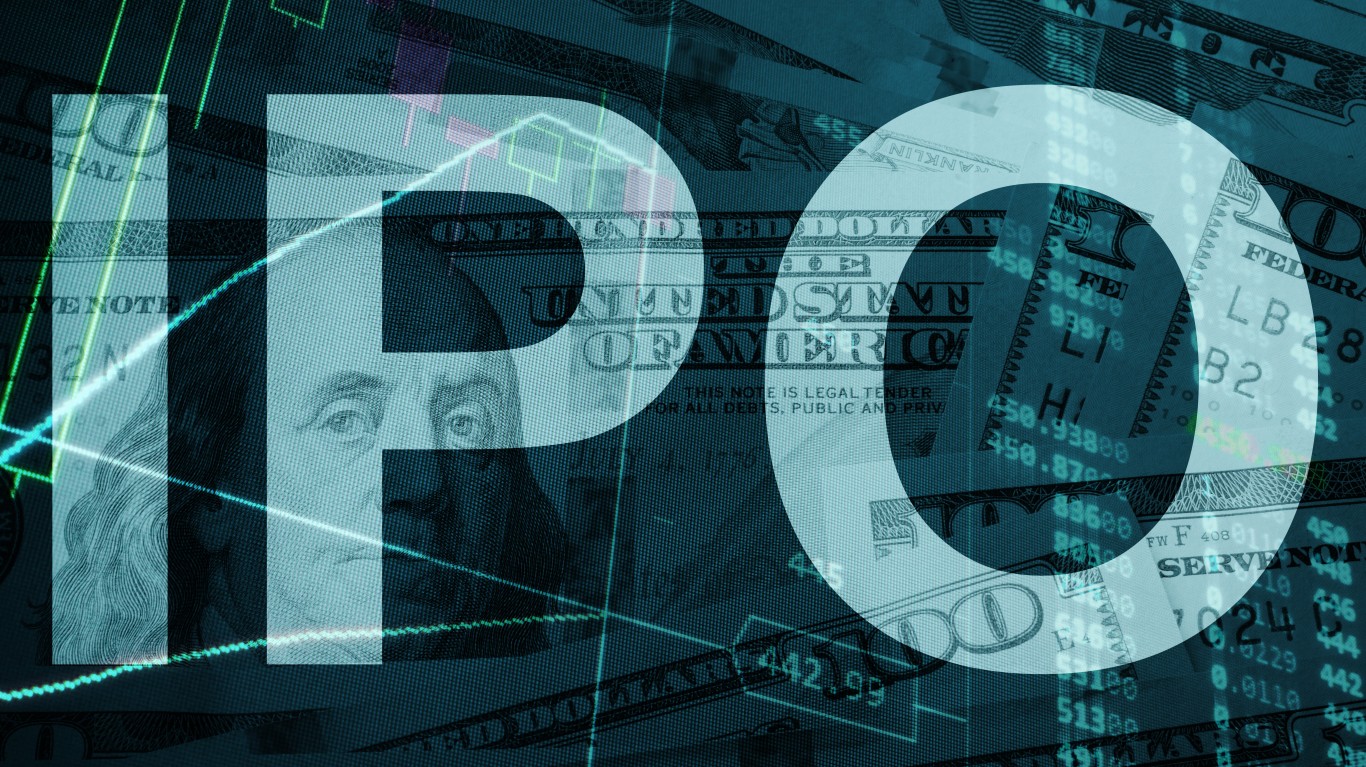Investing
IPO Market Remains Sluggish as Instacart Set to Go Public

Published:
Last Updated:

Instacart, a popular grocery delivery platform, is set to go public on the Nasdaq stock exchange with an initial price range of $28 to $30 per share. The company aims for a valuation of up to $10 billion and plans to offer 22 million shares, potentially raising $660 million.
In a regulatory filing on Friday, Instacart announced that it had raised its initial price range to between $28 and $30 per share, aiming for a valuation of up to $10 billion. The IPO plans to offer 22 million shares, including those from current shareholders, with the potential to raise up to $660 million.
The stock will trade under the ticker symbol “CART.” PepsiCo has also agreed to purchase $175 million in a concurrent private placement, as the grocery technology giant disclosed in its Form S-1 filed with the Securities and Exchange Commission (SEC).
Despite raising its price range, the company’s valuation has significantly declined since its peak in 2021. At the time, the company achieved a valuation of $39 billion and raised $265 million.
Nevertheless, Instacart has demonstrated improved financial performance in recent months. According to its securities filing, Instacart reported a net income of $242 million for the first six months of 2023, compared to a net loss of $74 million during the same period the previous year.
The IPO market has been relatively sluggish in recent times. While Arm Holdings and Instacart will likely command significant valuations, experts believe their debuts alone may not be enough to revive the overall IPO market.
It is worth noting that both Arm and Instacart have well-known brands. Arm, for instance, is a British semiconductor and software design company based in Cambridge, England, whose primary business is the design of the ARM architecture family of central processing units (CPUs). The company recorded $2.68 billion of revenue in its last fiscal year, which ended in March, and had $524 million in profit for that period.
Likewise, Instacart, founded in 2012, operates a grocery delivery and pick-up service in the United States and Canada. As of its most recent funding round, in March 2021, Instacart raised $265 million at a valuation of $39 billion from existing venture capital investors, including Andreessen Horowitz, Sequoia, and D1 Capital Partners.
That is why these companies are expected to command high valuations. Arm, for instance, secured a $54 billion valuation in its recent IPO, attracting investments from industry giants like Samsung, Google, Apple, and Nvidia. Instacart, on the other hand, is seeking a valuation exceeding $10 billion.
Market experts believe Arm and Instacart are outliers in the current IPO landscape. The broader market continues to experience a slump, with most companies going public during the pandemic now trading below their IPO prices.
“I don’t think this is something where the floodgates open all of a sudden after Arm and Instacart,” said Brianne Lynch, head of market insight at EquityZen, a platform that offers investors shares of pre-IPO companies. “We’re really looking at the worst market for IPOs since 2009.”
According to David Erickson, a senior fellow in Wharton’s finance department, this situation mirrors the aftermath of the dot-com bust, where IPOs faced similar challenges. The IPO market took years to recover after 2000, and some experts draw parallels to the current period.
Meanwhile, other notable IPOs on the horizon include Neumora Therapeutics, another SoftBank portfolio company, and marketing firm Klaviyo, German footwear maker Birkenstock Group BV also plans to offer shares in the US in the coming weeks. Investors hope that these listings will build upon Arm’s strong momentum.
Overall, the IPO market continues to face challenges, and the success of Arm and Instacart may not signify a widespread market revival. As other significant IPOs approach, market observers will closely monitor their performance and impact on the IPO landscape.
This article originally appeared on The Tokenist
Credit card companies are pulling out all the stops, with the issuers are offering insane travel rewards and perks.
We’re talking huge sign-up bonuses, points on every purchase, and benefits like lounge access, travel credits, and free hotel nights. For travelers, these rewards can add up to thousands of dollars in flights, upgrades, and luxury experiences every year.
It’s like getting paid to travel — and it’s available to qualified borrowers who know where to look.
We’ve rounded up some of the best travel credit cards on the market. Click here to see the list. Don’t miss these offers — they won’t be this good forever.
Thank you for reading! Have some feedback for us?
Contact the 24/7 Wall St. editorial team.